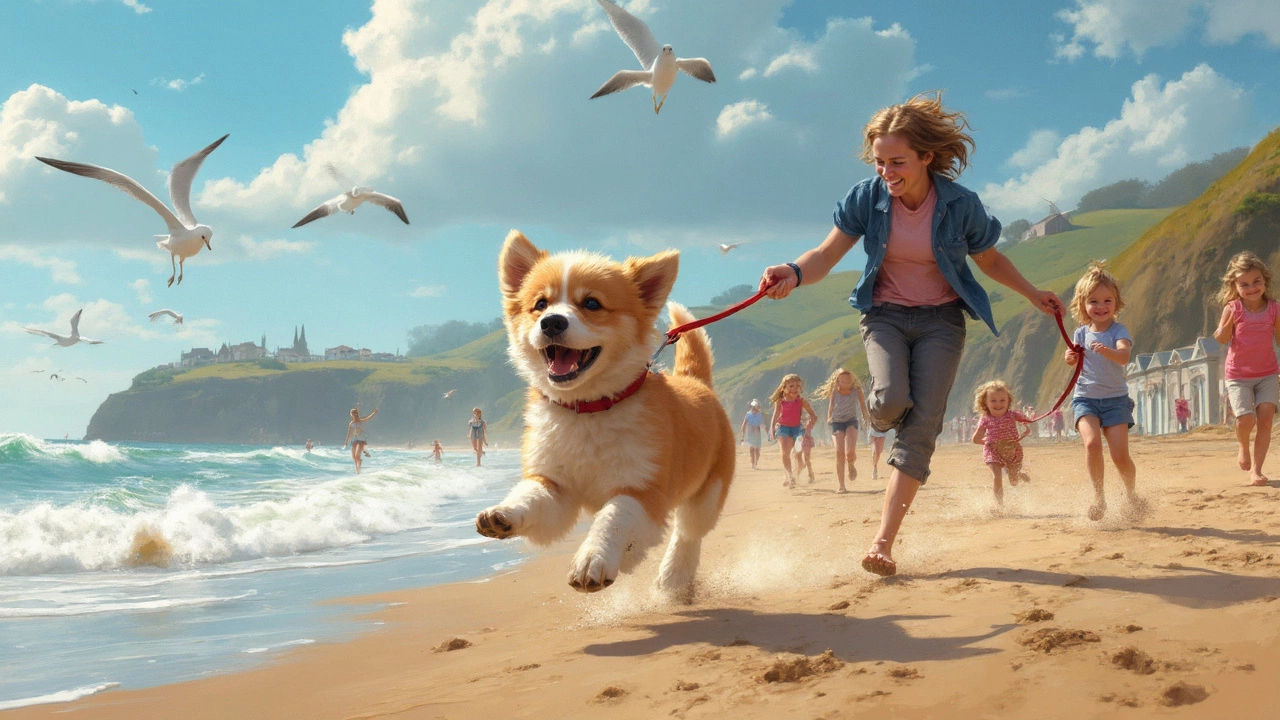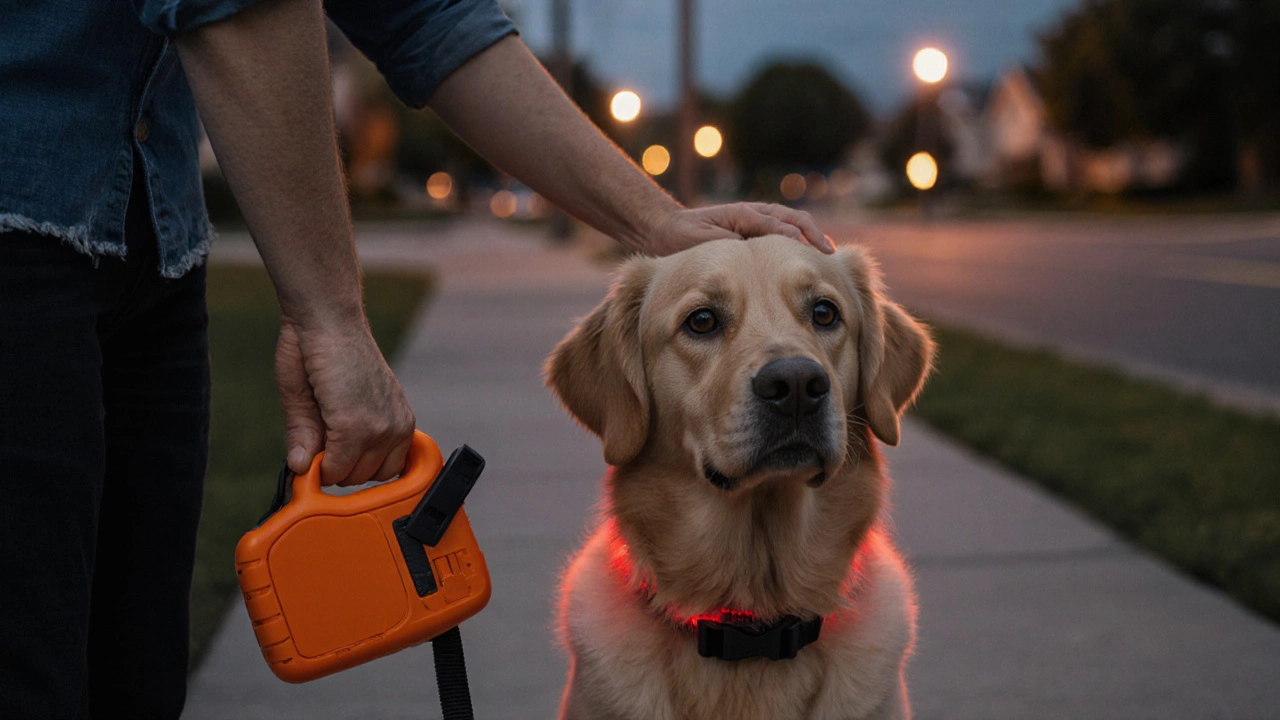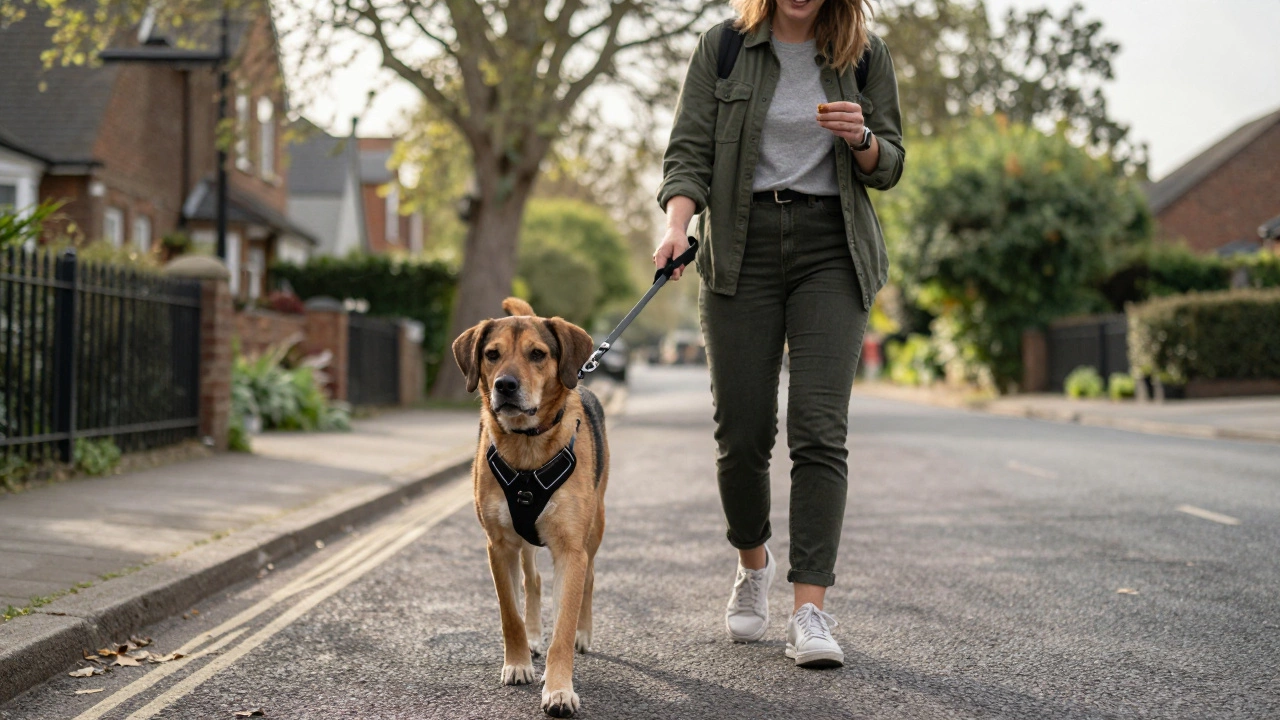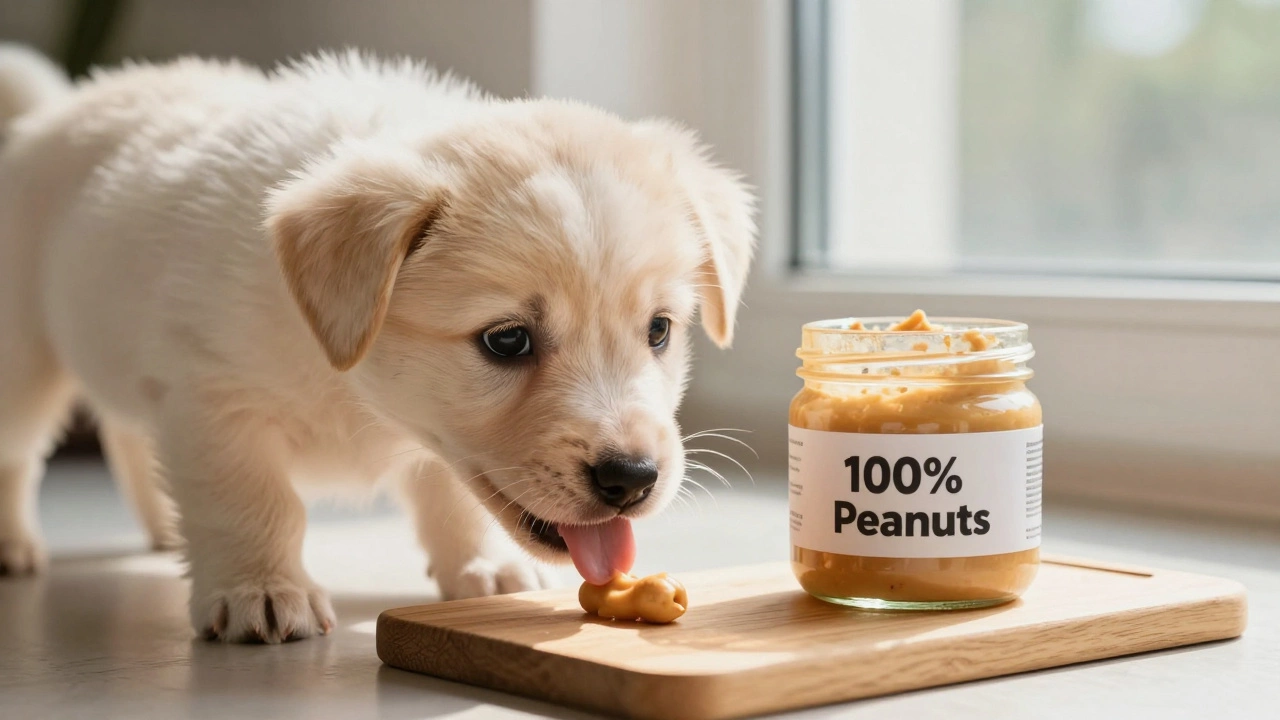Ever noticed how your dog perks up when you say their name, but not when you call out 'banana'? You're not imagining it. Dogs really do pick up on their names, and it’s more than just learning to react to any old sound you toss their way.
This isn’t just a party trick, either. A dog that knows its name can be much easier to handle, especially when you’re traveling. From crowded trails to dog-friendly hotels, their safety and your peace of mind depend on getting their attention fast. No one wants to be chasing Buddy through a campground while everyone’s trying to roast marshmallows.
If you love planning trips with your dog, understanding how they recognize their name is pure gold. You’ll be surprised how scientific (and sometimes funny) the whole process can get. Ready to learn what’s actually going on in your pup’s furry head?
- Why Dogs Respond to Names
- How Dogs Learn Their Names
- Testing Name Recognition
- Name Recall and Holiday Adventures
- Tips for Better Name Response
Why Dogs Respond to Names
So, why does your dog come running when you call their name instead of just any sound? Turns out, dogs are wired to pick out certain sounds from all the noise, thanks to a combination of habit and positive experiences. When you use your dog's name, you're not just saying a word; you're sending a signal that means attention, treats, a walk, or even just a cuddle. Dogs quickly link their name with something good or important happening.
Researchers from the University of Maryland found that dogs can clearly tell their own name apart from similar-sounding words. In their tests, more than 80% of dogs reacted first to their own names and ignored random words. This isn’t magic—it's good old-fashioned conditioning. Think about it like the way we check our phones when we hear our ringtone but tune out other people's.
There’s even data showing how fast this happens:
| Training Sessions | Dogs Recognizing Own Name (%) |
|---|---|
| 1-2 | 45 |
| 3-5 | 68 |
| 6-8 | 82 |
This means that within just a handful of training sessions, most dogs can figure out that their name means, "Hey, pay attention!"
But context helps too. Dogs tune into your voice, tone, and the situation. If you shout their name angrily versus saying it in your "treat time" voice, expect different results. They’re watching (and listening) closely.
One thing to remember: your dog’s name isn’t a magic word if you say it constantly or only when they’re in trouble. The more you use their name for positive things, the faster you’ll get their focus, especially when you’re out on a trip together.
How Dogs Learn Their Names
Here’s the wild thing: dogs don’t show up knowing their names. They learn them through repetition and positive experiences. Most pups start recognizing their own name as early as 2-3 months old if their owners use it often enough. It’s all about the association. When they hear their name and something good follows—like treats or a belly rub—they connect the dots fast.
But there’s a bit more to it. Dogs pick up on the sound pattern of their name, not the meaning. They notice certain tones, especially when you get that squeaky, excited voice. Scientists from Cornell found that dogs process human speech kind of like we do—they can pull out familiar words (like their name) from a jumble of sounds.
| How Dogs Learn Names | Average Timeframe |
|---|---|
| Start to recognize name | 1-2 weeks with daily training |
| Reliable recall (comes when called) | 1-2 months of consistent practice |
Consistency always pays off. Every time you use your dog’s name, they’re making mental notes. If you only say their name when you’re angry or about to put them in the bath, guess what? They might hide next time. That’s why experts say to keep it positive. Use the name before good stuff—walks, play, meals, and gentle pats.
- Say your dog’s name in a happy tone.
- Reward them when they respond, even if it’s just with attention.
- Avoid shouting their name in stressful moments or when you’re annoyed.
- Try not to overuse their name (don’t say it ten times in a row if they’re ignoring you—that usually makes them tune out).
For travelers, this matters a lot. If you take your dog on trips often, you’ll rely on their name for quick recall, especially in busy parks, strange streets, or new hotels. A well-trained dog really makes every adventure safer and way more relaxing for everyone.
If you’re just starting out or worried your dog doesn’t quite "get it," you’re not alone. Even pro trainers say it’s normal for some pups to take longer. Just keep it simple and positive, and your dog will catch on faster than you think. That makes your next dog friendly holiday together a whole lot easier.

Testing Name Recognition
So, does Bella really know her name, or is she just good at guessing what gets her treats? It turns out, a pretty simple test at home can tell you a lot about what your dog understands. Researchers usually look for clear reaction differences when the dog's real name is called versus random words.
Here's an easy way to check:
- Wait until your dog isn't paying attention to you—maybe they're sniffing around or staring out the window.
- Say their name in a normal, upbeat voice. Watch for signs like ears perking up, tail wagging, or turning toward you.
- After a break, call out a random word with the same energy. Something like "pizza" or "table." See if your dog reacts the same, or just ignores you completely.
If their head pops up only at their own name, congratulations—they actually recognize it. Fun fact: According to a 2019 study from the journal Animal Cognition, most dogs can tell their own name from other words, even out of a string of four or five similar-sounding words.
"The majority of pet dogs tested responded significantly more to their own name than to control words, supporting the idea that typical pet dogs do know their own names." – Dr. Alexandra Horowitz, canine cognition researcher
It’s not just about the name, though. Dogs catch on to patterns. If you use their name mostly when something good happens—like snacks or going for walks—they’ll tune in fast. But if you only say it when they’re in trouble, they might start ignoring it, or worse, run the other way.
Check out this handy table from a survey by Pet Behaviour Science (2021) that shows common reactions to name-calling:
| Reaction | % of Dogs Displaying |
|---|---|
| Looking at Owner | 82% |
| Coming to Owner | 65% |
| Wagging Tail | 70% |
| No Reaction to Random Word | 77% |
Try this test with your dog next time you're packing for a trip. It's quick, fun, and you might learn something new about your four-legged pal.
Name Recall and Holiday Adventures
Going on holiday with your dog is a blast—unless your pup is the type to chase after every squirrel and ignore you when you call. On the road or hiking a new trail, getting your dog's attention quickly can be a real lifesaver. Experts say that name recall is probably the most important skill for safe and relaxed travel with dogs.
Reliable name recall isn’t just about showing off. If your dog wanders off at a rest stop, veers toward a busy street, or finds something gross at a picnic, you want them to pause and check in. According to the American Kennel Club,
“A dog that comes when called can avoid dangerous situations, and makes outings much more enjoyable for everyone involved."
During holidays, you’re facing lots of distractions—new scents, other dogs, excited kids, and plenty of food smells. Dogs get curious and sometimes bold, especially in new places. It’s easy for a dog to zone out everything else but their own name, if you’ve trained them well. That's why practicing solid name recall before your trip pays off in a big way.
If you want your dog to consistently return or pay attention when called while you’re traveling, make the name sound rewarding. Call out their name in a happy, upbeat tone and follow up with praise or treats, even outside your usual routine. You’re reinforcing that listening always pays off, whether you’re at home or beside a mountain lake.
- Practice at home first, then try it in more distracting places like your backyard, a quiet park, and eventually busier spots.
- Don’t only call your dog when it’s bad news (like leaving the park). Mix it up with games, treats, and cuddles.
- Keep treats handy on trips, and don’t forget to use the same name and tone every time. Consistency is the magic trick here.
Bringing your dog on holiday is way less stressful when you can count on their response. A reliable recall turns adventures into memorable stories, instead of frantic searches. Worth the effort? Every traveler with a dog will tell you yes.

Tips for Better Name Response
If your dog looks at you when you call their name at home, that’s great. But things get messier when you’re at a new park or hanging out at a beach hotel. Training your dog to respond to their name no matter where you are is a real game-changer for those spontaneous dogs trips.
Names work best when you treat them like a special signal, not just another sound. Here’s what can help:
- Pair the name with eye contact. Say their name and right as they look at you, give a tasty treat or toss their favorite toy. That positive connection sticks in their brain.
- Keep it happy. Don’t use their name when you’re annoyed or yelling about the trash can they just raided. If their name means trouble, they’ll tune you out.
- Practice with distance and distractions. Start in the living room, then try in the backyard, and finally at the local park. Bring their attention back with treats, praise, or a quick game.
- Avoid overusing the name. If you say it nonstop ("Max, Max, Maaax!"), it’ll start sounding like background noise. One clear call is more powerful.
- Test for confusion. Have two people call your dog at the same time from different places. If your dog chooses you, you’re doing something right.
When you’re on a trip, a strong name response could save you a headache—or even your dog’s safety. About 85% of lost dog recoveries list “recognizing their name” as what brought their pet back to them, according to a 2024 survey from a major pet microchip provider.
| Tip | Why It Works |
|---|---|
| Use treats and toys for name response | Rewards motivate and boost name association |
| Stick to a positive tone | Makes responding something your dog enjoys |
| Vary the environments | Helps transfer name recall to new places |
| Avoid yelling the name when upset | Prevents negative connection with their name |
Investing just five minutes a day in name games can make that next dog-friendly holiday go from stressful to smooth. You’ll never regret it.








